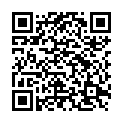|
|
|
| Module code: MST2.PSYS |
|
|
4P (4 hours per week) |
|
4 |
| Semester: 5 |
| Mandatory course: no |
Language of instruction:
German |
Assessment:
Term paper
[updated 25.05.2021]
|
MST2.PSYS (P231-0118) Mechatronics and Sensor Technology, Bachelor, ASPO 01.10.2019
, semester 5, optional course, technical, course inactive since 04.10.2021
MST2.PSYS (P231-0118) Mechatronics and Sensor Technology, Bachelor, ASPO 01.10.2020
, semester 5, optional course, technical, course inactive since 04.10.2021
Suitable for exchange students (learning agreement)
|
60 class hours (= 45 clock hours) over a 15-week period.
The total student study time is 120 hours (equivalent to 4 ECTS credits).
There are therefore 75 hours available for class preparation and follow-up work and exam preparation.
|
Recommended prerequisites (modules):
MST2.ELE Electronics
MST2.ELT Electrical Engineering
MST2.SYS1 System Theory and Control Engineering 1
[updated 29.03.2021]
|
Recommended as prerequisite for:
|
Module coordinator:
Prof. Dr.-Ing. Barbara Hippauf |
Lecturer:
Prof. Dr.-Ing. Barbara Hippauf (practical training)
[updated 29.03.2021]
|
Learning outcomes:
After successfully completing this module, students will be familiar with methods from systems theory and control engineering and be able to implement them in laboratory setups.
They will be able to interpret and evaluate test results according to systems theory and control engineering methods.
They will be able to use the tools and equipment typical for control engineering.
[updated 25.05.2021]
|
Module content:
Basic concepts of control engineering, command and disturbance behavior.
Recording static and dynamic characteristics of a controlled system.
Describing dynamic systems in the time and frequency domains: Frequency response, Bode plots and transfer function.
Disturbances
Control loop design
Simulating controlled systems and control loops
Properties and structure of continuous controllers
Studying the stability of control loops and their behavior
Introduction to simulation technology using different tools (Matlab, Matlab-Simulink; WinFACT: BORIS, LISA, IDA; Python).
Seminar-style teaching, practical work in the laboratory using experimental setups, system simulation on the PC.
[updated 25.05.2021]
|
Recommended or required reading:
Kahlert, J.: Crashkurs Regelungstechnik, 4. Auflage, VDE-Verlag 2020.
Kahlert, J.: Einführung in WinFACT, Hanser Verlag 2009.
Hans-Werner Phillippsen: Einstieg in die Regelungstechnik mit Python, Hanser Verlag 3 Auflage, 2019.
Katsuhiko Ogata, Matlab for Control Engineers, Pearson Prentice Hall, 2008.
Gert Schüter: Regelung technischer Systeme- interaktiv, Fachbundverlag Leipzig 2001.
Anneliese Böttiger, Regelungstechnik, 3 Auflage, Oldenbourg Verlag 1998.
Otto Föllinger: Regelungstechnik, Einführung in die Methoden und ihre Anwendung, 12 Auflage, VDE Verlag 2016.
Course slides, practical training documents and lecture notes
[updated 25.05.2021]
|


